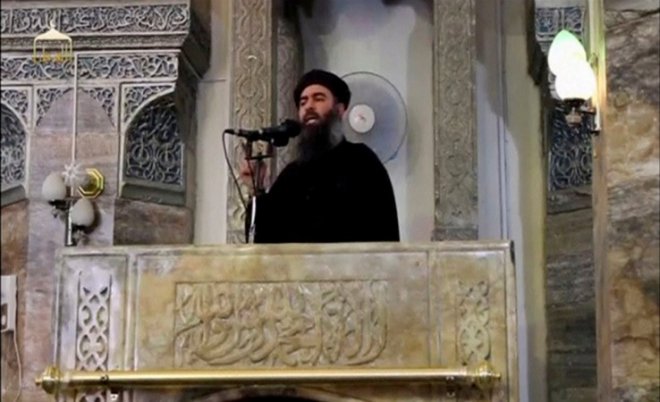
Russian Defence Ministry said on Friday that Islamic State leader Abu Bakr al-Baghdadi has been killed, according to Reuters.
Viktor Ozerov, the head of the ministry was quoted by Interfax news agency as saying that "I think this information is close to 100 percent. The fact that Islamic State has still not shown him anywhere also adds to our confidence that al-Baghdadi has been killed." On June 16, the Russian Defence Ministry had stated that it was probing whether one of its air strikes in Syria in May had killed the ISIS head.
According to reports, ISIS leaders had assimilated at the command centre located in the southern suburb of Raqqa to discuss possible routes of retreat from the city, which is the extremist group's de-facto capital.
Several drones were sent by the Russian military to monitor the region after getting intelligence of the gathering. Then it had sent a group of fighter jets to target the group leaders assimilated in the area. The reports stated that a number of senior ISIS leaders were believed to have been killed in the air strike.
However, the United States-led coalition fighting ISIS in the region could not confirm the Russian report. Several regional officers have said that they are not certain about the intelligence report that they have received from Russia.
In response to this, Committee head Ozerov said that the Russian Defence Ministry would not have released the information about Baghdadi's death, if it had not believed it to be true.
Over the recent years, the ISIS leader's death has been reported on frequent occasions without any possible confirmation of his demise. In 2014, Baghdadi declared himself to be the "caliph" at the Grand al-Nuri Mosque in Mosul. It was his only public appearance.
If confirmed, the leader's death would be one of the biggest blows yet to the terrorist group that is trying to defend its shrinking territory in Syria and Iraq against forces backed by regional and global powers.









